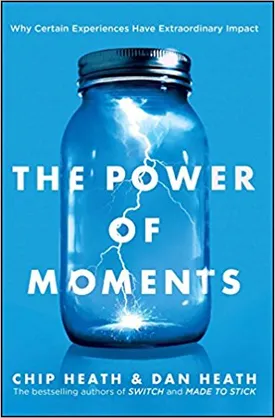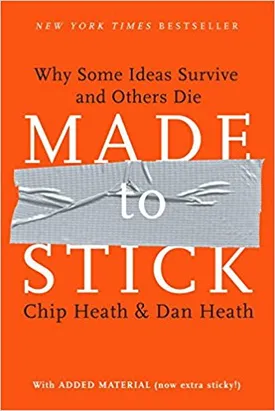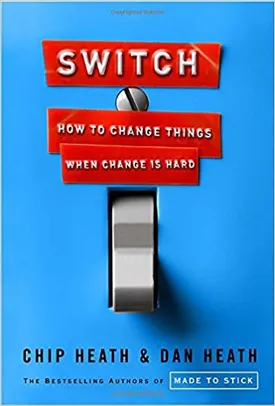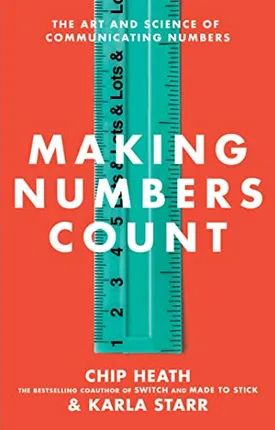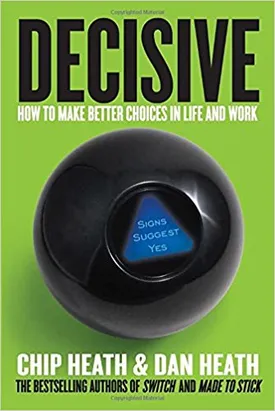Chip Heath
Chip Heath is an author, professor, and public speaker, who focuses on organizational behavior, change management, and strategy. Heath grew up in the rural town of Eudora, KS, and developed an interest in understanding how organizations and individuals cope with change and complexity at an early age. As an adult, he focused his studies of this area on psychology and economics, and even conducted a number of corporate consulting projects to serve as examples in his books. The breakthrough book that defined Heath's body of work was Made to Stick, which was co-authored by his brother Dan Heath in 2007. Heath has since authored four additional books and is currently the Ross Professorship in the Graduate School of Business at Stanford University.
The first groundbreaking book Heath wrote was Made to Stick. The book focuses on four key ideas to make messages "sticky": simplicity, unexpectedness, concreteness, and credibility. Heath and coauthor Dan Heath argue that ideas need to have all of these qualities in order to be memorable and successful. The book provides numerous examples to illustrate their point and outlines which ideas have been effective and which were unsuccessful. Overall, the book is a popular guide for marketers and business people to learn how to craft persuasive messages.
The second book, Switch: How to Change Things When Change is Hard, was released in 2010. This book looks closely at how leaders can successfully lead large-scale change efforts through aligning understanding, motivation, and featuring a compass to steer the action. Heath and Dan focus on how understanding how our brains evoke fear and how we can use this as a tool to break through our resistances. They address “the bright spots” which show us where we can wander for advice and guidance on how to finish what we start.
Heath’s third book, Decisive: How to Make Better Choices in Life and Work, was released in 2013. This book looks closely at the different ways we think and make decisions, and suggests a simple process to breaking down complex decisions. It examines four different types of decisions people face, and presents a strategy which allows users to make a decision with confidence and clarity. This book is popular among those looking to refine their decision making process, as it provides an easy to understand arithmetic to aid in problem solving.
Heath's other books, The Power of Moments and Upstream, examine large organizations and how to create rewarding experiences for employees. The Power of Moments investigates why certain moments stand out in our memory, and what organizations can do to create moments of wonder or joy for customers or employees. Upstream explores how to recognize and handle problems “upstream” to prevent them from becoming costly “downstream” issues.
Overall, Chip Heath has made an impact in the corporate field and in the way we view organizational behavior and change management. His books have been widely appreciated by both professionals and laypeople. Heath's approach to refining the process on how we think about large-scale change and make decisions offers valuable insights and strategies that can be used in various areas of life.

